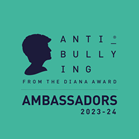All children at Headley Park have the right to feel safe and respected at school. We believe that bullying of any kind is totally unacceptable and will not be tolerated in our community. All incidents of bullying will be taken seriously.
What is bullying?
At Headley Park Primary School we use the Anti-Bullying Alliance definition of bullying, which is:
‘Bullying is the repetitive, intentional hurting of one person or group by another person or group, where the relationship involves an imbalance of power. It can happen face to face or online.’
We refer to this as STOPP for short and when discussing bullying with children. STOPP refers to ‘several times on purpose for power’.
Bullying can include: name calling, taunting, mocking, making offensive comments, kicking, hitting, taking belongings, inappropriate text messaging and online messaging (including through websites, social networking sites, online gaming and instant messaging), sending offensive or degrading images by phone or online, producing offensive graffiti, gossiping, excluding people from groups and spreading hurtful and untruthful rumours.
What bullying is not
It is important to understand that bullying is not the odd occasion of falling out with friends, name calling, arguments or when the occasional trick or joke is played on someone. It is bullying if it is done several times on purpose.
Children sometimes fall out and say things because they are upset. When occasional problems of this kind arise it is not classed as bullying but all incidents of relational conflict are investigated and responded to.
Ways of reporting bullying
Members of the safeguarding team are responsible for anti-bullying work. These individuals are key points of contact for pupils, staff or parents who may have a concern about bullying.

Pupils
If pupils witness bullying or feel they are being bullied they can tell any member of staff who must pass the information on to the appropriate class teachers.
Children can also write down any worries they have about bullying and put these into 'Worry Monsters' in EYFS and KS1 and 'Worry Boxes' in KS2.
Parents
If you have a concern or worry that your child is being bullied, please contact your child's class teacher in the first instance. Alternatively, you can email the school office or speak to a member of the safeguarding team directly.


